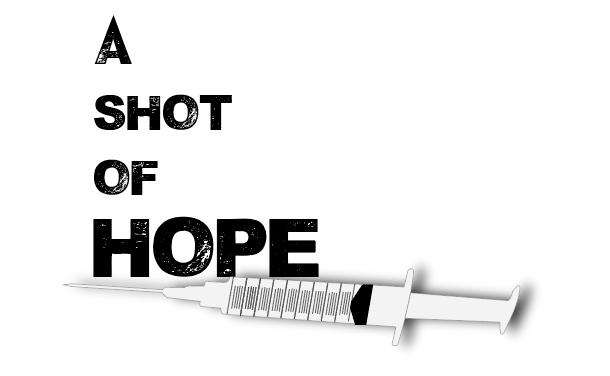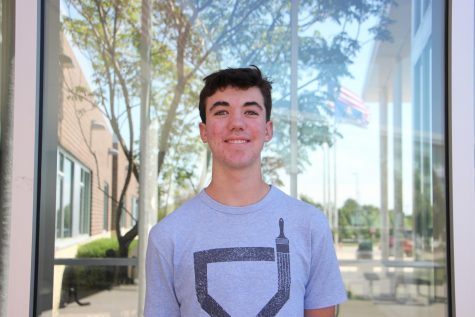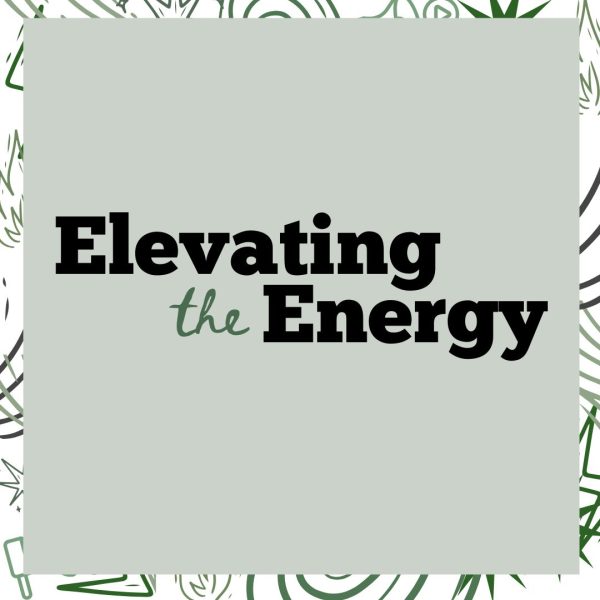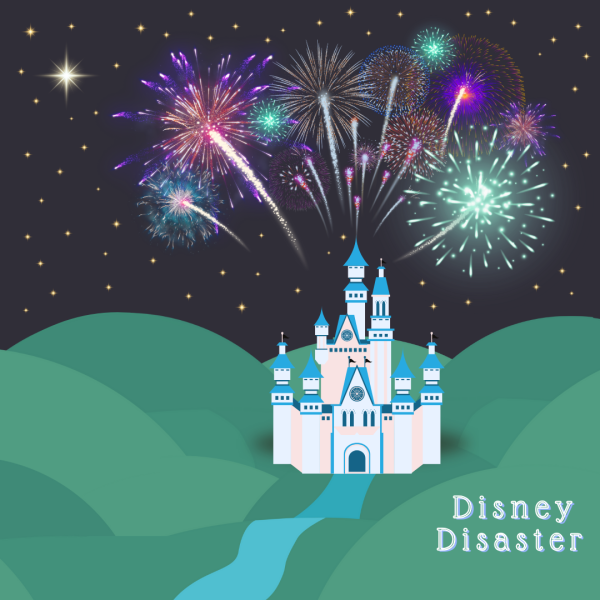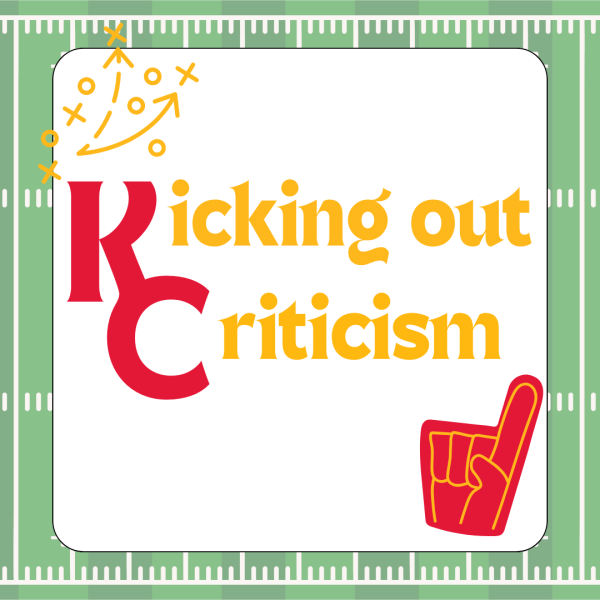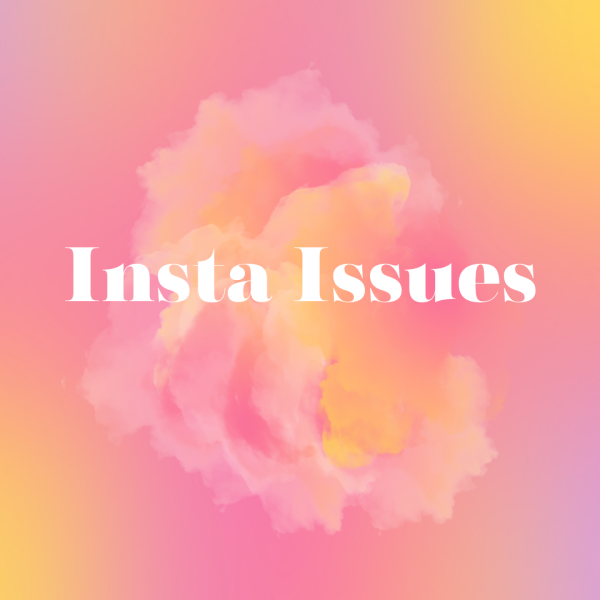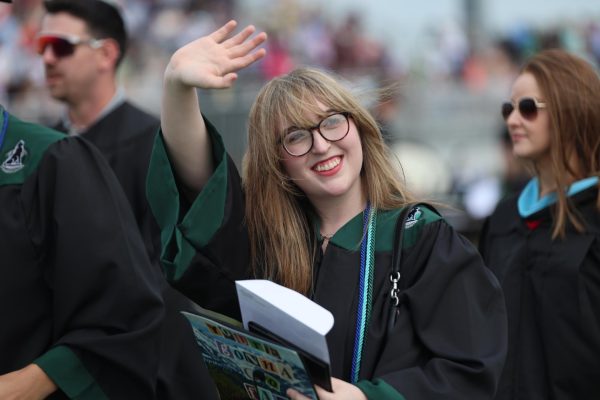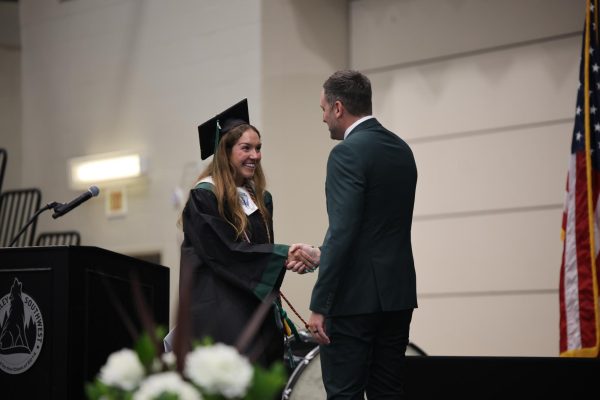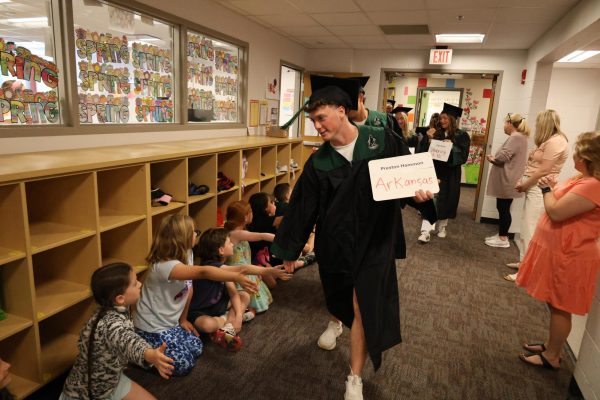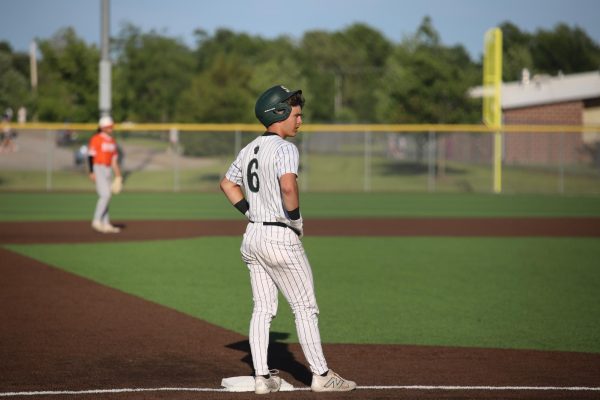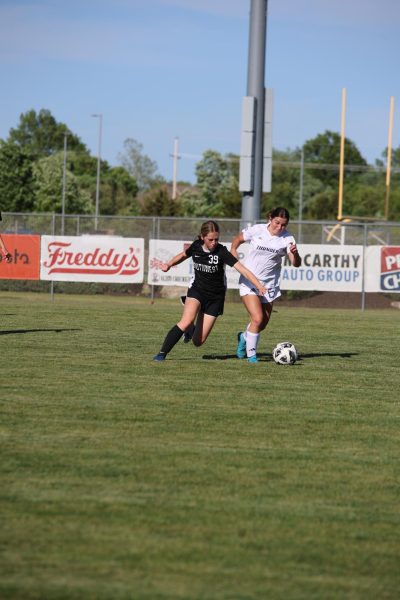A Shot of Hope
Everyone should get COVID-19 vaccine so society can function again
A needle depicts the COVID-19 vaccine and its distribution.
As the vaccine for COVID-19 is distributed, many people are rejoicing in the triumph of science and a potential end to the global pandemic. However, even among the good news, many are skeptical about the safety and efficacy of the vaccine. Conspiracies and myths float around the Internet and a number of people are still unwilling to take the vaccine.
This vaccine is the only way out of the Coronavirus pandemic. The economy can’t open without it; schools won’t open without it; fans can’t pack into stadiums without it. It is the responsibility of every American to get the vaccine as soon as they are able so that everyone can return to living normal, safe lives. Dr. Chris Jenson, Blue Valley school district’s medical adviser, said he has full confidence in the safety of the vaccines and would urge everyone to receive it.
“So far the vaccine has proven to be very safe, both in clinical trials and phase one, two and three, as well as the earliest information from the CDC,” Jenson said. “No vaccine will ever be flawless, but this vaccine is performing extremely well.”
Senior Mira Hentschel said misinformation is driving the resistance to the vaccine, and education and informing one’s self is the first step to making an opinion.
“I want people to remember the facts and to not just take information off TikTok and take information off Instagram or someone’s Snapchat story,” Hentschel said. “Although everybody is entitled to their opinion, I think it’s important that if you’re going to have an opinion, it should be researched and you shouldn’t express false information.”
Jenson said as more people receive the vaccine, more data will become available about the safety of the vaccine beyond the trial participants.
“Instead of just looking at the results and side effects of 30,000 people in the trial, now you’re looking at 4.5 million, and our country is sharing our information with other countries and vice versa,” Jenson said. “We’re tracking as we go to make sure the info we were told is, in fact, true.”
Hentschel said she doesn’t think schools should open until cases decrease, which is unlikely to happen until the majority of the community is vaccinated. She also said she would stay away from large events and social gatherings until public health officials recognize it is safe to attend.
“I’m going to have to be able to look at the data and see the cases go down, especially our area,” Hentschel said. “It would probably be until schools open back up that I wouldn’t be going to anything big because if I can’t go to school, why should I be going to a concert?”
Sophomore Braden McNeill echoed Hentschel, saying he would be hesitant to be in large crowds until the vaccine roll-out is further along.
“If you don’t have a vaccine, you definitely should not attend [large events] because you might still have [COVID-19] or get it,” McNeill said.
The district is coordinating with other school districts in the area in conjunction with the Johnson County Health Department to ensure all students and staff have access to the vaccine if they cannot receive it through a primary care provider. Even though schools are thinking about a return-to-school plan, Jenson said it may take more time than many expect before classrooms are back to normal.
“I believe we are marching down the path to being a lot more like normal, and I’m happy that this is happening a lot faster than some health experts thought it would,” Jenson said. “I do want to caution that I think it’s a while before we’re totally out of the woods and back to normal school as we perceive it.”
One of the most important things to remember is that even after vaccines are distributed, masks and social distancing will still be mandatory under Governor Laura Kelly’s Executive Order No. 20-68.
“We could have done a lot better in addressing [the pandemic] head-on earlier and initiating mandates and distancing and masks a lot earlier than what we did,” Hentschel said. “We’re still dealing with it after so long because we didn’t do that.”
McNeill said having a vaccine shouldn’t change how people act until the data reflects fewer positive cases. He said people should still be wary of public spaces, even after they are vaccinated.
“I feel like we could do better, and restaurants need to be a little more online rather than sit-down without a mask and everyone in the same room,” McNeill said.
No vaccine has been tested in children under the age of 16, causing some to be fearful of vaccinating children until further data is available. Jenson said the overwhelming demand for the vaccine caused pharmaceuticals to delay pediatric trials, but he anticipates positive results when they do occur.
“I suspect the reason the vaccine companies did not trial it on kids is because it would have lengthened the time to get approval, and the world at large needed this vaccine fast,” Jenson said.
Skeptics of the vaccine have also pointed to the rapid speed at which the vaccines were developed as a reason to be suspicious, but Jenson said the speed is due to a global mobilization toward vaccine development. The entire world was in need of a vaccine, so the scientific community came together to dedicate money, time and resources to one project: the COVID-19 vaccine.
“I believe that the vaccine has been appropriately developed, researched aggressively, treated with care and one thing I would share with folks who are suspicious about the vaccine is that I’m not so sure there’s been a moment in the last 150 years that something in science hasn’t been scrutinized or put under a microscope more closely than putting this vaccine together,” Jenson said. “So someone who wanted to do something nefarious, gosh would it be hard because this has been watched by the whole world. There are leaders, there are regulatory agencies, there are top scientists, and I would have to believe someone would speak out if something malicious was going on.”
At the end of the day, how quickly the world reopens will depend on how quickly the vaccine can be distributed and how many people choose to be vaccinated. People should take the initiative to research the vaccine and ask questions, but the data so far shows one overarching theme: the vaccine is safe and effective.
“I think it is important that if you can get the vaccine you should,” Hentschel said. “I think it will help [eliminate] the public fear a lot.”
The greatest abnormality about this vaccine has nothing to do with its contents or the time frame in which it was developed. It is that everyone, from the government to the pharmaceutical companies to the scientists, were able to collaborate and work on the same page.
“We have done diligence, the scientific community, and we have not rushed the trials,” Jenson said. “And the things that normally lag are funding and approval- paperwork. It was the paperwork that went lightning fast — the science went at a normal speed.”


